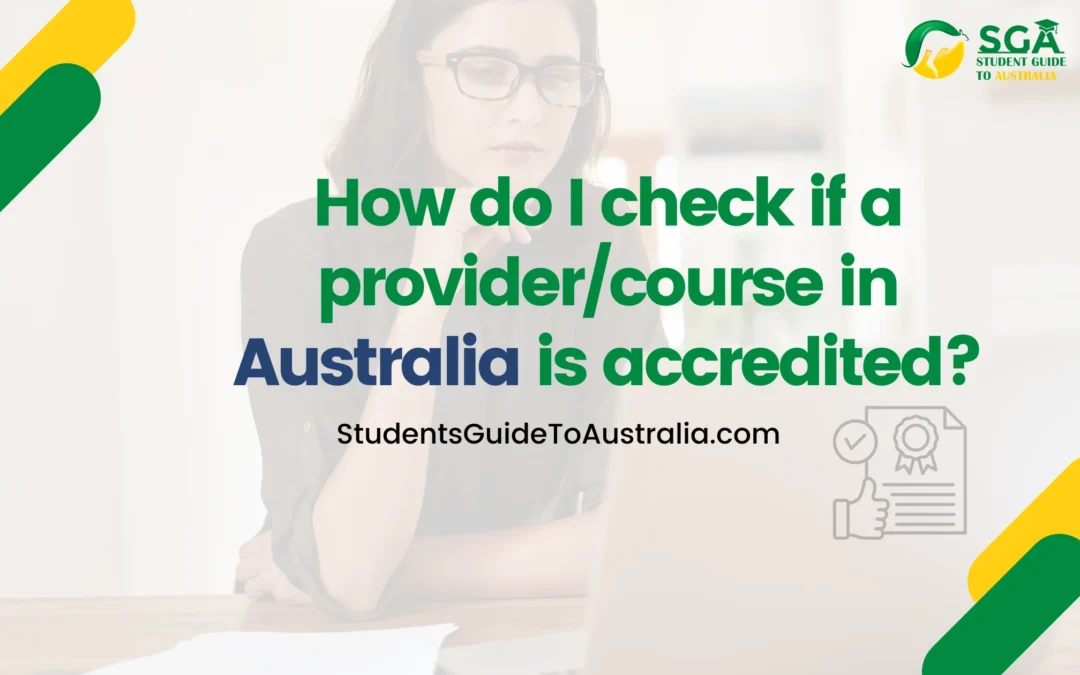What is accreditation?
Accreditation is a peer review group based on academic requirements that reviews schools on the basis of their vision, mission, goals, admission requirements, quality of education, reputation of the faculty/ departments and services provided to the students.
When is a school not accredited?
There are certain conditions for a school/educational institution for not being accredited:
- The institution is new
- They do not live up to the criteria of the accreditation board
- The institution waiting to be reviewed
- The institution only provides diploma study, and crucially, lacks recognized accreditation for these programs. While many legitimate and valuable vocational or technical institutions offer diplomas and are properly accredited by relevant bodies, if an institution offering diplomas (or any qualification) cannot demonstrate recognized accreditation, it warrants caution. Some predatory entities, often called ‘diploma mills,’ may offer worthless qualifications, including diplomas, and these are typically unaccredited.
Signs that an institution is not accredited
The following are signs of an institution not being accredited:
- When you’re applying, ask the institution for placement services and academic counselling. If they hesitate to give you the required information, that’s a big RED flag.
- Check alumni testimonials. The disreputable colleges will provide falsified testimonials that say everything is awesome.
- Don’t be fooled by a name: Some unaccredited entities may use names that sound similar to well-known, prestigious universities or colleges to attempt to deceive learners. For example, an institution might use a name like “Oxford International College” or “Cambridge Learning Institute” to falsely imply an association with the highly-regarded “Oxford University” or “Cambridge University” when no such legitimate connection exists. Always verify the accreditation of the specific institution you are considering, regardless of its name.
- Be careful if a college is extremely pushy, especially about the financial assistance packages they “give.” If you are being hunted by overly engaging financial assistance counselors, that is a very poor indication.
How do I know if a provider/course is registered?
If you’d like to check if a provider/course is registered or not, the easiest way to do it by checking the national register. The courses/providers must be registered to a national standard in Australia in order to be considered accredited. Other things that you can find from the national register are as follows :
- Category of the providers’ registration (University(Australian or overseas), higher education)
- The registered time period (7 years or less)
- Self-accreditation or national accreditation
- Course name
- Course re-accreditation date
- Link to providers’ page for student experience and graduate employment opportunities
For VET provider :
If you are looking to study VET in Australia, you can find information about the college in the official Australian VET website : https://training.gov.au/
Visit the website and go to the National Register of VET and search for the college.
For higher education
If you are looking to get your higher education in Australia, you can find information about the colleges in the given website:
www.teqsa.gov.au/national-register
You can input the name of the college in the search bar and see if the provider/course is registered or not.
Self accreditation
Understanding Formal Self-Accreditation vs. Unsubstantiated Claims: True ‘self-accrediting authority’ is a recognized status granted by a national or regional quality assurance agency (like TEQSA in Australia for higher education providers) to established, high-quality institutions, typically universities. This status means the institution has demonstrated consistently high standards and robust internal quality assurance processes, allowing it to accredit its own courses without needing separate external approval for each new course. However, these institutions still operate under the oversight of the national regulatory body. This is very different from an institution that has no accreditation from any recognized external board and simply claims its programs are valid based on its “own set of accreditation standards.” Such claims of “self-accreditation” without backing from a legitimate, independent accrediting authority are generally meaningless and can be a characteristic of unaccredited operations or diploma mills.
What is the Benefit of Having an Accredited Degree in the Job Market?
There are tremendous advantages of getting a degree on the job market. Workers with an associate degree receive an average of 25% more than employees with a high school diploma, and employees with a bachelor degree receive more than 70% more. Having a degree is required for many jobs to be recruited or promoted beyond a certain level at all.
What is CRICOS?
CRICOS stands for the Commonwealth Register of Institutions and Courses for Overseas Students and is intended to help ensure quality education for global learners studying in Australia. To meet the requirements set out in the National Code of Practice for Providers of Education and Training to Overseas Students, all Australian education providers that recruit, enrol, and teach overseas students must be registered on CRICOS.
But, is accreditation actually necessary?
Actually, no — there are some colleges offering practical training that really does not require accreditation to support their graduates. These include schools of technology and some schools of art. In many cases, you don’t need to be accredited because your portfolio or tech abilities will talk for themselves.






